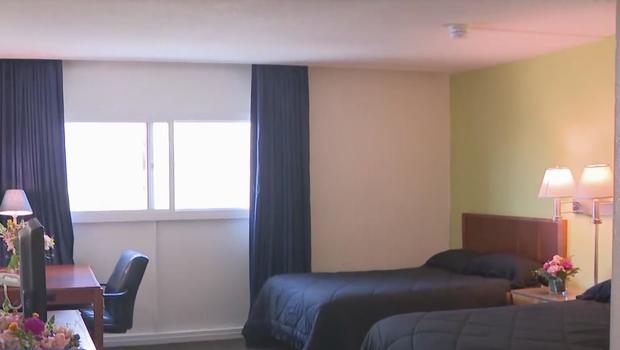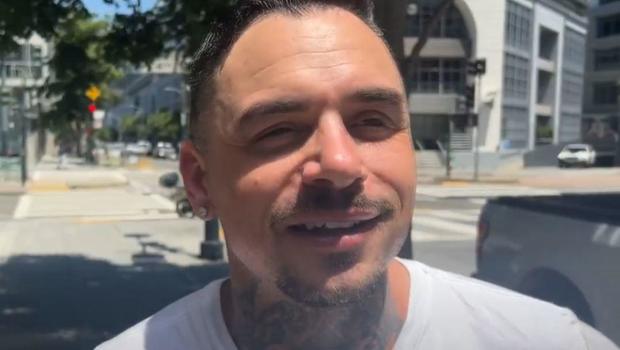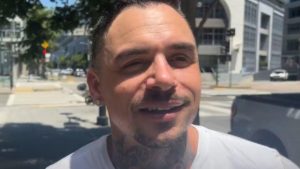On December 10, the San Francisco Department of Homelessness and Supportive Housing (HSH) will implement a new policy that would alter the prioritization process and impose more stringent restrictions on the length of time homeless families can remain in shelters.
The following statement was sent to CBS News Bay Area by an HSH representative:
“Some of the most vulnerable members of our community are affected by the epidemic of family homelessness. HSH has been collaborating closely with family providers and individuals who have experienced homelessness to create significant changes to the family homelessness response system in order to better meet the needs of families in our community. The family shelter waitlist, shelter priority, and shelter length of stay are the main topics of these revisions. The goal of these changes is to make our system for responding to family homelessness more effective and better equipped to serve the needs of families in our community. The current Coordinated Entry reform process will include changes to housing placement and prioritization.
Restoring the length of stay to 90 days and allowing for up to three extensions depending on family circumstances are the main modifications to the shelter length, according to HSH. There are few exceptions, but if a family turns down three offers of permanent accommodation, they will no longer be eligible for a shelter extension.
Families with the most urgent needs, such those who are presently homeless or living in a car, are supposed to have access to beds.
However, Yasmeen Williams, a survivor of familial homelessness, described the shift as “heartbreaking.”
“Three months isn’t adequate time to be able to secure housing, to get resources that you need to get back on your feet,” she stated. At one point, when our time in the shelter was coming to a close, I began to lose hope. We were able to find housing at last. If I had just three months, I don’t know where I would have been.
In 2022, she and her sister found themselves homeless in the blink of an eye.
“We jumped from shelter to shelter, two or three, a few couches, and we finally got housing in San Francisco a year later,” she explained. “I think there are preconceived notions about what homelessness looks like. Each person experiencing it has a different narrative to tell.
In addition to altering the duration of stay, the new HSH policy also restructures the shelter queue to give preference to those who fit into the following categories.
Additionally, according to the spokesperson, families that have been residing in shelters with 24-hour access to facilities for 14 days or longer, or in livable SROs, will no longer be added to the waitlist.
“We ought to be heading in the opposite way. Between 2022 and 2024, family homelessness increased by 98%, according to Hope Kamer, Compass Family Services’ Director of Public Policy and External Affairs. “We have more and more families becoming homeless with no housing available, and this is also going to decrease the availability of shelter.”
According to Kamer, the policy changes are the result of a larger problem that goes beyond HSH.
“I simply believe that the fact that we are not allocating resources to this issue on a large scale is really unacceptable. Despite having extremely few resources, they are doing their hardest. “We require additional resources,” she stated. “Without providing any resources to the end of the continuum, we are restricting who is allowed to be in these shelters. The number of families who are qualified to be on the wait list will be artificially reduced, giving the impression that there are fewer families in need. However, the demand is tremendous and only becomes worse.
Kamer shares Williams’ concern that more families would wind up homeless as a result of the reforms.
“Flow is what providers desire. Families should be placed in shelters for a brief stay, transitional housing, and long-term housing solutions. However, as a result of these modifications, a family will return to the streets from the shelter,” she stated. “With problem-solving funding, we may have prevented a case of homelessness for certain families. But before we provide any assistance, we’re going to let them reach their lowest point.”
HSH thinks the policy changes will eventually improve the effectiveness and efficiency of the family homelessness response system.
Williams worries that homeless families may find it more difficult to survive as a result.
“All you want to do is to be able to provide and protect the person and people that you care for, especially when it’s a child,” she stated. “It’s hypocritical of what San Francisco says it actually wants to achieve with the homeless population because it pushes people back into unsafe conditions.”
Note: Every piece of content is rigorously reviewed by our team of experienced writers and editors to ensure its accuracy. Our writers use credible sources and adhere to strict fact-checking protocols to verify all claims and data before publication. If an error is identified, we promptly correct it and strive for transparency in all updates, feel free to reach out to us via email. We appreciate your trust and support!
ChiefsFocus is a dedicated news writer with extensive experience in covering news across the United States. With a passion for storytelling and a commitment to journalistic integrity, ChiefsFocus delivers accurate and engaging content that informs and resonates with readers, keeping them updated on the latest developments nationwide.







